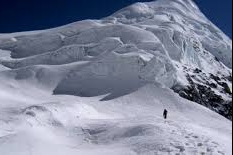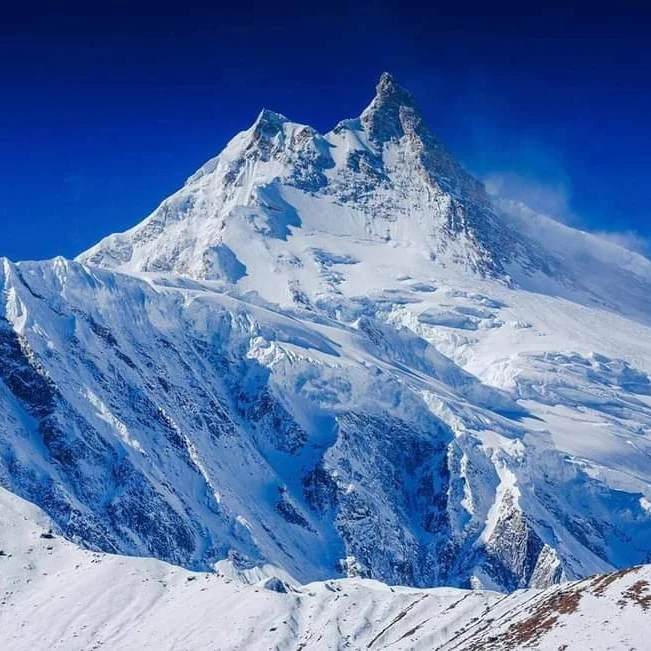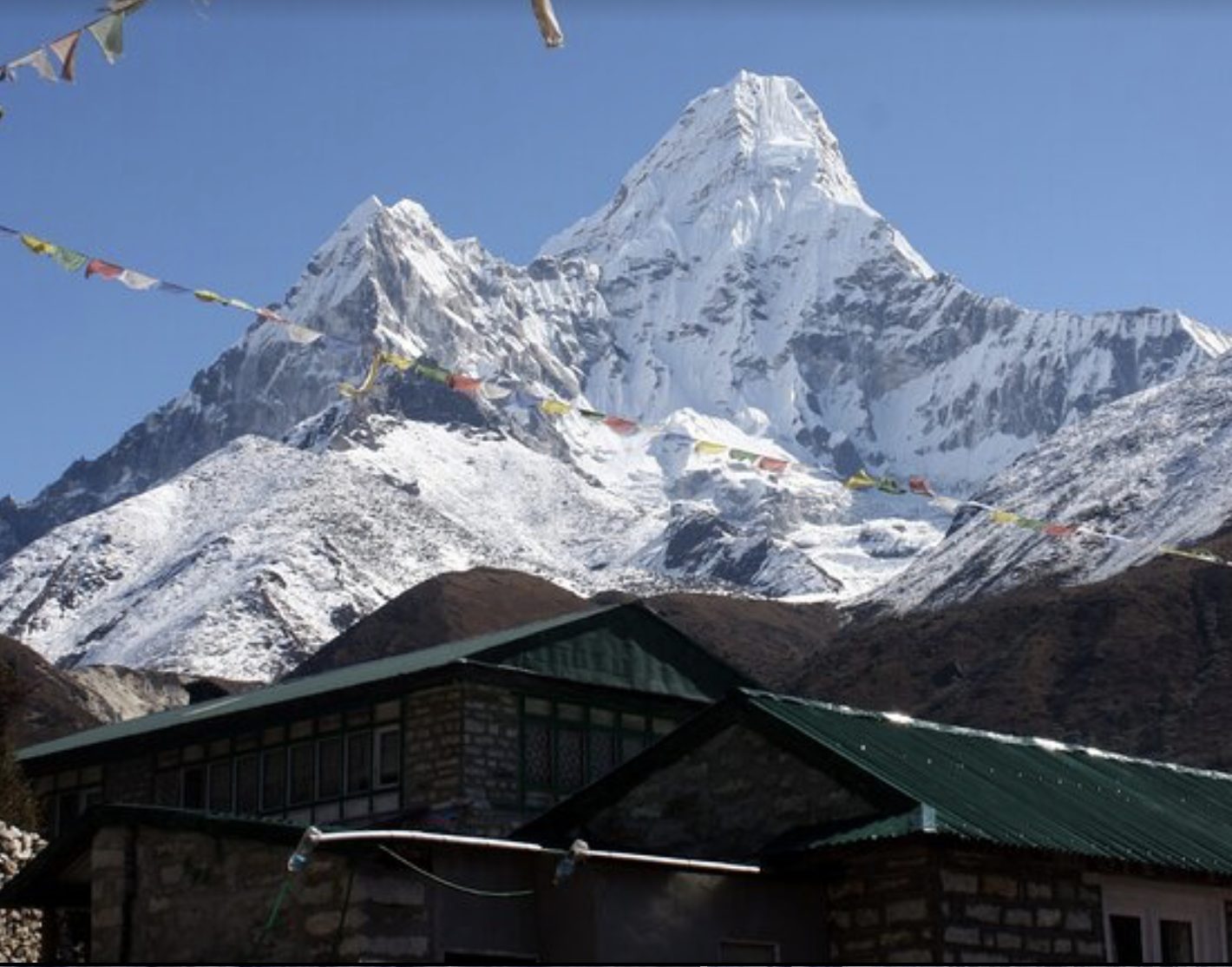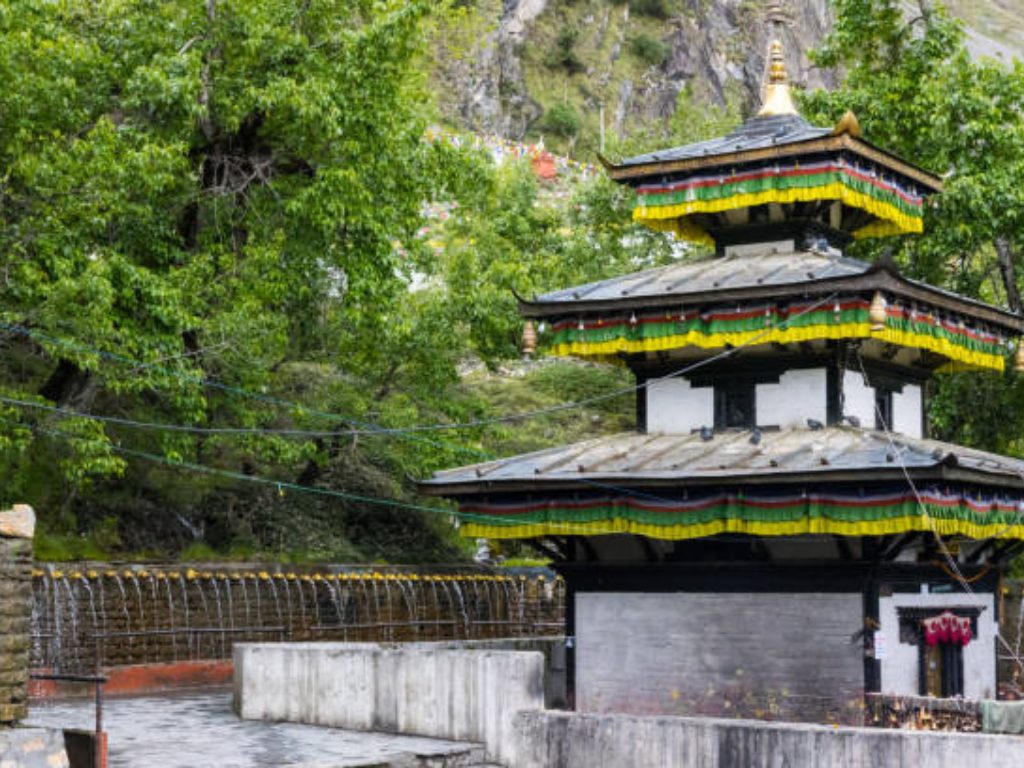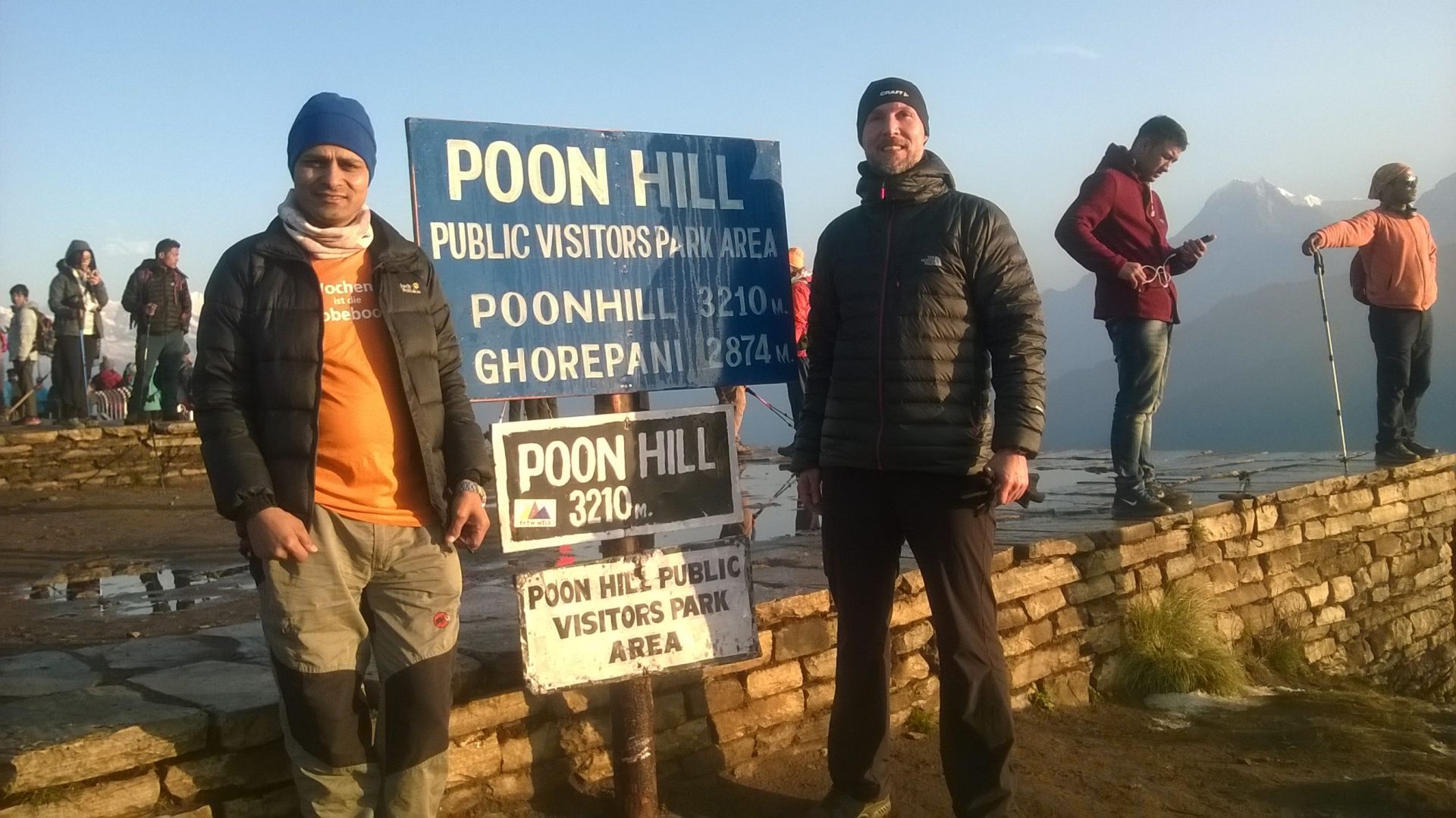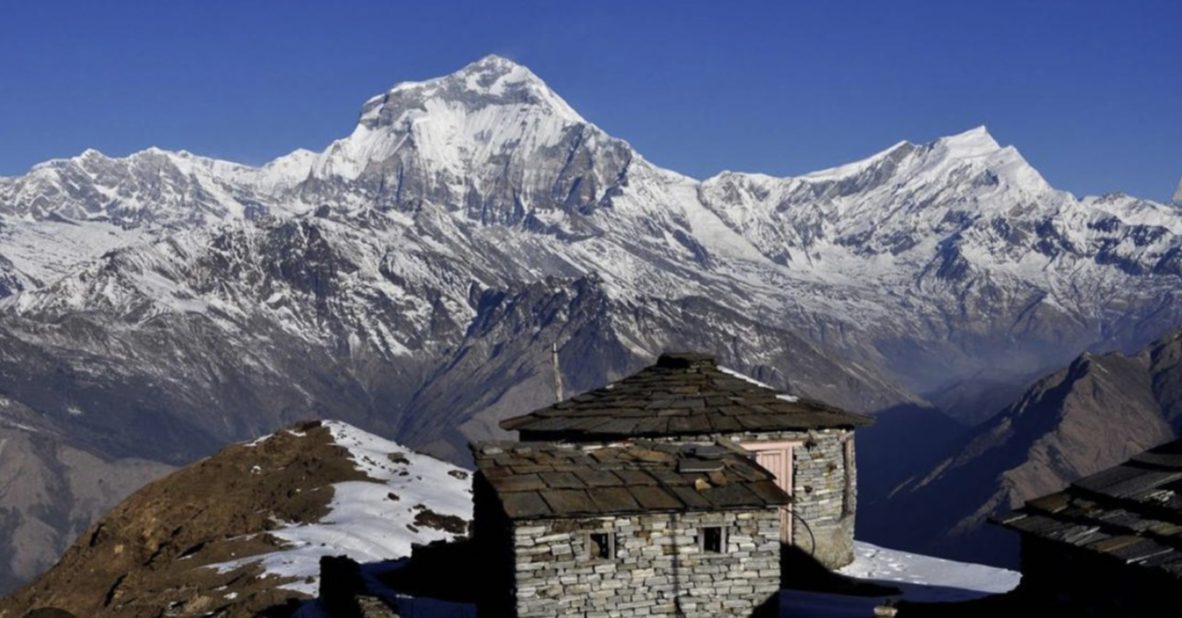Mera Peak Climbing From Khare – 3 Days Overview
Mera Peak Climbing from Khare is the ultimate experience for mountaineers seeking a stunning Himalayan panorama and a thrilling high-altitude experience. Standing at 6,476 meters, Mera Peak is one of Nepal’s highest easily accessible and rewarding trekking peaks. The climb from Khare offers a direct and strategic route that allows mountaineers to acclimatize properly and make a gradual ascent. Led by veteran Sherpas and assisted by a well-planned itinerary, Mera Peak Climbing from Khare is an excellent choice for anyone who is willing to climb one of Nepal’s most stunning peaks.
The Khare route presents a safe and attainable climb for veteran and aspiring mountaineers. Trekkers first hike through lush rhododendron forests, cross high passes, and reach Khare, the last village before the ascent. Here, trekkers finalize their preparations, such as training in the use of climbing gear and acclimatization. The ascent to the summit begins with a traverse of the glacier and a steady climb, which rewards climbers with stunning views of Everest, Lhotse, Makalu, and Cho Oyu. With proper acclimatization and determination, Mera Peak Climbing from Khare is a lifelong memorable experience.
It is a lifetime experience to get to the Mera Peak summit, offering a sense of triumph and adventure. The descent follows the same route, making for a neatly organized and comfortable return to Khare. Mera Peak Climbing from Khare is, for novice climbers and experienced trekkers, an ideal combination of adventure- and nature. With professional guides, meticulously organized logistics, and breathtaking scenery, this climb promises an unforgettable experience into the Himalayan heartland. For an out-of-the-ordinary high-altitude experience, Mera Peak Climbing from Khare is the ideal challenge to take on.
Best Climate and weather for Mera Peak Climbing From Khare
Mera Peak Climbing from Khare is a thrilling experience, but having knowledge of the climate and weather conditions is essential to ensure a successful climb. Weather at Mera Peak Climbing from Khare varies as per the season, making it simpler or more difficult and transforming the experience completely. Being situated at high altitude of 6,476 meters, the climate of Mera Peak Climbing from Khare is unpredictable, with freezing weather and strong winds, especially near the summit. Best seasons for Mera Peak Climbing from Khare are pre-monsoon (spring) and post-monsoon (autumn), with stable weather and clear skies providing the best climbing conditions.
Spring (March to May) – Best for Mera Peak Climbing from Khare
Spring is one of the best seasons for Mera Peak Climbing from Khare, with moderate temperatures and good visibility. Temperature levels during the daytime at Khare range between 10°C to -5°C, with the top enduring a range of -25°C to -15°C. It’s more settled and experiences lesser speeds in its wind, rendering climbing to the peak easier for climber. Climbers traverse the trek way along lines decorated with blossoming rhododendrons that make it yet more elegant-looking. Fog-free weather gives excellent sightings of Everest, Lhotse, Makalu, and Cho Oyu, and Mera Peak Climbing from Khare is a photo-friendly experience in spring.
Autumn (September to November) – Best Time for Mera Peak Climbing from Khare
Autumn is yet another best time for Mera Peak Climbing from Khare with dry and stable weather conditions. Temperatures are several degrees cooler than spring, between -10°C to 8°C at Khare and between -20°C to -30°C at the top. Skies tend to be crystal clear, and mountain views are wonderful. There is less scope for snow and wind during this period, and so the trek becomes more predictable and pleasant. With the crisp mountain air and neatly piled trails, Mera Peak Climbing from Khare in fall is an ideal choice for the climbers who want to experience the best conditions.
Winter (December to February) – Harsh Cold on Mera Peak Climbing from Khare
Winter season exposes Mera Peak Climbing from Khare to harsh conditions in the form of freezing weather and strong winds. The temperature at Khare falls as low as -15°C to -5°C, while at the summit, it goes as low as -30°C. Strong winds and heavy snowfall make it more challenging, and high-altitude mountaineering skills are required. While some experienced mountaineers attempt Mera Peak Climbing from Khare during winter, harsh cold and fierce storms render it challenging.
Monsoon (June to August) – Difficult Climbing Conditions from Khare for Mera Peak
The monsoon season is the most unfavorable for Mera Peak Climbing from Khare due to heavy rainfall, slippery tracks, and poor visibility. Temperature at Khare varies from 0°C to 10°C, but continual rain increases the risk of landslides and delays. Snowfall at altitudes increases the difficulty of climbing. The gloomy weather is not favorable to mountain views, reducing the landscape beauty of Mera Peak Climbing from Khare.
Local culture and religion on Mera Peak
This region surrounding Mera Peak Climbing from Khare is strongly dominated by Tibetan Buddhism, and the region has a rich cultural history reflected in the lifestyle of Sherpa people. The villages along the trekking route, like Khare, are populated by Sherpa people who are renowned for their mountaineering abilities and hospitality. Monasteries, prayer flags, mani walls, and chortens line the trails, reflecting the deep spiritual connection of the people with the mountains.
During Mera Peak Climbing from Khare, climbers usually encounter Buddhist ceremonies, Sherpa traditional homes, and colorful festivals such as Mani Rimdu. This major festival, held in nearby monasteries such as Tengboche, involves masked dances, prayers, and symbolic rituals performed by Buddhist monks. Visitors are requested to respect local traditions, such as turning the prayer wheels in the clockwise direction and welcoming people with “Tashi Delek” as a token of goodwill.
Healthy Meals at Mera Peak Climbing from Khare
Trekking all day at altitude makes you hungry! luckly you can order a variety of hot cooked dishes at your teahouses with a choice of both Nepali and western meals every meal. The meals include energy giving food and liquid food like rice, cereals, lentils soup, noodles soup, hot tea potato etc.
Accommodation on the Mera Peak Climbing from Khare
Accommodation on the Mera Peak Climbing from Khare varies with both basic and comfortable options being available on the trail. At village tea houses like Mera Peak Climbing and Khare, you will experience warm hospitality while getting a chance to indulge in the local culture. The rooms come in a twin-sharing arrangement with beds provided but bathrooms shared. In most cases, tented camping is not practiced anymore as tea houses and hotels are easily accessible. But some of the lodges on the Mera Peak Climbing from Khare offer more luxurious rooms with better facilities, including beds, mattresses, and blankets.
Hot showers, typically gas-heated, are available, and in some lodges, you will be provided with a bucket of hot water for a wash. Wi-Fi is available in most locations, but the speed of the connection may be variable. The ideal time to undertake the Mera Peak Climbing from Khare is in the spring (March to May) and autumn (September to November) seasons, when the weather is nice and accommodations are at their best
Travel Insurance for a Safe Mera Peak Climbing from Khare
We strongly recommend you to get travel insurance before going on a Mera Peak Climbing From Khare. Make sure that, your insurance covers accidents abroad and high in the mountains. We do our best to take care of you, but sometimes we have to face unavoidable accident that is out of our control. So in case of a medical emergency, leading to a helicopter evacuation, it is best to have insurance.
Guide and Porters for the safety on Mera Peak Climbing
According to Nepal tourism board all the Mera Peak Climbing From Khare activities should be conducted along with a government licensed guide and porter. Your safety is our first priority. So our guide and porter are dedicated to making your experience of trekking in Nepal a memorable one without compromising your safety. Along with your safety we also focus on our guide and porter safety too. Notably, our guide and porter are provided with insurance facility. Porter will carry up to 10 kg or 15 kg per client. If you wish , you may keep your clothing and items in a storage on room where you are stay on Kathmandu hotel.
Altitude Sickness During the Mera Peak Climbing
Normally altitude sickness occurs when you travel to a high altitude too quickly. Headache, Dizziness, loss of appetite, fatigue, shortness of breath, drowsiness, flatulence peripheral,fluctuation is body temperature, nausea, tiredness etc are the symptoms occur when your body tries to adjust to the lower air pressure and lower oxygen levels at high altitudes. Here are some things you can do to prevent yourself from getting altitude sickness.
- Stop and rest where you are
- Do not go any higher for at least 24 to 48 hours
- Make sure you are drinking enough water
- Do not smoke, drink alcohol, or exercise
- Eating foods and drinking fluids that contain carbs such as bread, pasta, fruits, milk, rice, and so on.
Preventing Altitude Sickness (AMS):
- Rest Well: Ensure that you rest well before starting your trek.
- Stay Hydrated: Continue drinking plenty of water during the journey.
- Balanced Nutrition: Maintain the balance of salt and sugar through proper eating habits and not skipping meals.
- Keep Warm: Layer up to remain warm without profuse sweating.
- Controlled Breathing: Breathe deeply and steadily from your diaphragm to maximize lung capacity. Maintain a comfortable walking speed that will allow for controlled breathing. Nasal breathing avoids drying your throat—wearing a muff or scarf in high altitudes might be of use.
- Pace Yourself: It’s not a competition. Pace yourself with a maintainable and Server consistent pace instead of exhausting yourself too early and taking many rest stops. Stop and admire the stunning views.
Mera Peak Climbing From Khare – 3 Days Highlights
- Reach the summit of Mera Peak, Nepal’s highest trekking peak at 6,476 meters.
- Enjoy the scenic trek from Khare through picturesque landscapes, snow along the entire route, steep gorges, and high altitude.
- Experience technical climbing using ropes, ice axes, and crampons on the final stretch to the summit.
- Be amazed by the breathtaking views of some of the world’s highest mountains such as Mount Everest, Lhotse, and Makalu from the summit.
- Experience the unique culture of the Sherpa people and visit surrounding villages and monasteries along the way.
- Challenge yourself physically and mentally and push beyond your comfort zone.
- Create lifelong memories and an unforgettable experience in the Himalayas.
- Witness stunning sunrises and sunsets over the Himalayas from various points on the trek and climb.
- Trek over the Mera La Pass, which offers incredible panoramic views of the surrounding peaks and valleys.
- Camp in beautiful and isolated campsites, including high camps with breathtaking views.
- Experience the thrill of glacier moraine traverses, crevasse crossings, and high-altitude icefall traverses.
- Visit the scenic and cultural highlights of Kathmandu, the capital city of Nepal, both before and after the expedition.
- Enjoy the company and support of fellow climbers, as well as the guides and porters, during the expedition.
Important Notes
Nepal Holiday Treks and Tours Pvt. Ltd. has years of expertise in the field of Himalayan trekking and can curate unforgettable experiences for adventurers like you. In order for trekkers to have a really comfortable and pleasant Everest Base Camp Trek, we are offering different optional services as per your need.
Optional Add-Ons Available:
✅ Porter Service – USD $
Lighten your load and trek with ease! Our experienced porters can take up to 25 kg of luggage, which can be shared between two trekkers. Let the beauty of the landscape soak into you instead, without heavy gear.
✅ Kathmandu to Lukla Helicopter Flight – USD
Avoid the pain of regular flights and start your adventure with a helicopter ride from Kathmandu to Lukla. This option offers breathtaking aerial views of the Himalayas while saving you time.
✅ Lukla to Kathmandu Helicopter Flight – USD $
Complete your trekking in style with a helicopter ride from Lukla back to Kathmandu. Ensuring a smooth return in comfort and with spectacular aerial views of the Everest Region, without risk of possible flight delays.
✅ Upgraded Accommodation – USD
Upgrade your trekking experience with upgraded lodges featuring attached bathrooms at key locations: Phakding (1 night), Namche (3 nights), Tyangboche (1 night), Dingboche (2 nights), and Lukla (1 night). Enjoy added comfort after long days on the trail.
✅ Extra Night in Kathmandu – USD $/night
Arriving early or staying longer? Add extra nights at our partnered 3-star hotel in Kathmandu, including breakfast, to relax before or after your trek.
How to Customize Your EBC Trek:
- Choose Your Trek Departure Date.
- Mention the Number of Travelers.
- Click on ‘Book Now’ or ‘Add to Cart.’
- Choose Your Required Add-on Options.
- Complete Your Booking and Payment.
Required Experience:
This trek is ideal for active trekkers who can hike 6 to 7 hours a day carrying a light daypack. On certain days, the trekking is longer and the altitude increases the difficulty level of trekking. The trails are generally good, but there could be boulder and uneven patches in between.
Itinerary and Schedule: We try to follow the itinerary planned; yet trekking in distant mountain regions means uncertainty. Factors such as weather and trekkers’ well-being may make readjustments necessary. Your guide and Sherpa crew will try to stick to the trail as designed but flexibility is a must. Your safety is our topmost priority and also to get you back to Kathmandu before your scheduled departure.
What will the temperature be like during trek?
Weather conditions can vary significantly depending on the season and can change rapidly, especially at higher elevations. If your trek takes you above 3,000m, you should be prepared for temperatures ranging from -10°C to 25°C in a single day. It’s essential to have proper protection against sun exposure and strong winds. For helpful weather insights, refer to reliable source. Feel free to reach out to us for a recommended packing list tailored to your trekking itinerary.
How much money should be we bring?
You’ll require Nepali Rupees for any expenditure not covered by your package itinerary. Such costs might include bottled water, night hot shower, extra snacks, extra hot drinks, repairing or replacing equipment, battery charging, souvenirs, and tips. In case you want to shop, Thamel is an excellent place to shop on your last day. You are welcome to come to our office prior to your trek for individual counsel and assistance with money exchange.
Electricity, telephone, and internet access are available at most lodges and guesthouses along the Mera Peak Climbing From Khare, but with some additional charges. While the trek itself does not have widespread access to electricity, many lodges rely on solar power or generators to provide energy. You can recharge your devices like cameras, mobiles, and laptops at these places, although it usually comes at an extra cost. If you need to make phone calls or access the internet, some accommodations offer limited telephone and Wi-Fi services. You can obtain an internet password from the lodge, but keep in mind that these services typically incur additional fees.
Fill your life with adventures, not things. Have stories to tell, not stuff to show. Hurry up! Adventure is waiting for you and mountains are calling you.
This trip is fully customization. Importantly, this trip is available on both a fixed departure and a private group basis. Moreover, we can also customize the trip as per your needs, please contact us at Whatsapp (+977-9843770916) or email us at [email protected]. Let us know how we can help you, and we will do our best to give you the best customer service you’ll get anywhere else.
Furthermore, Nepal holiday treks and tours Pvt. Ltd. is a reputable and reliable company serving relentlessly in the field of tourism to fulfill the dreams of diverse adventure seekers around the globe into reality where they can feel most alive. So, we recommend you to reserve seat for yourself by booking with us right away for a wonderful and unforgettable trip experience.
Mera Peak Climbing From Khare – 3 Days Itinerary
Expand allDay 1: Meeting with Guide and Pre-Climbing Orientation and Training in Khare (5045m)
Today marks your initial day on the Mera Peak Climbing expedition departing from Khare. Today, our guide will meet you in Khare; we will provide you with the name of the meeting point and the time for our pre-trip gathering at the Kathmandu office. Following your meeting with our climbing guide, he will inspect all your climbing equipment, and if it’s inadequate, he will recommend renting from our shop in Khare. He provides you with brief instruction on climbing methods. After this you can return to your tea house and get a nap, being prepared for the expedition next day! Today, you need to pay for your own food and accommodation.
Day 2: Climb from Khare (5045m) to Mera High Camp ( 5,780 m ~/ 7,35 m ~/ 5-6 hrs )
After your breakfast, your journey begins with a climbing guide. The trek from Khare to Mera Peak Base Camp is straightforward; it will take roughly 2 hours. Many of the climbers don’t remain in Base Camp since the walk from Khare to Base Camp is quite short and simple. We arranged a route that goes straight to the High Camp from Khare too. Once you arrive at High Camp, our team will serve you lunch, and our guide will instruct you on using climbing equipment and essential mountain safety.
Day 3: Mera High Camp (5780m) to the Summit of Mera Peak (6461m) and then descend to Khare (5045m ~/ 9-10 hrs ~/ 1,416 m ).
Two hours past the mid-night, at 2 AM we start preparing for our exciting journey to Mera Peak Summit. We primarily utilize a flashlight and proceed safely by rope. The path isn’t hard, but the cold air and low oxygen levels force us to slow our pace.
The most difficult section of the journey is 40 to 50 meters before the summit, where we utilize fixed ropes and jumars to ascend the snowy dome of Mera Peak’s peak. We will arrive at the top of Mera Peak between 9 and 10 am. We stay for 5 to 10 minutes at the summit of Mera Peak before descending to High Camp.Our team will welcome you with hot tea or coffee at the high camp. We pause briefly to have lunch and then hike down to Khare for the night.
If the above Everest Base Camp Trek itinerary does not meet your needs, we can design individualized travel plans based on your preferences and specifications.
Plan My TripMera Peak Climbing From Khare – 3 Days Cost Includes
- By Private Vehicle transfers on hotel .
- Three times three meals a day- Breakfast, Lunch, Dinner and 3 cups of tea/Coffee a day during the trek.
- Accommodation in tea house during the trek Private room.
- In a day time tea break with cookies every day.
- National park Trekking permits & local government permit and TIMS Card.
- In a day time tea break with cookies every day.
- Fresh fruits after dinner every night as dessert during the trek.
- 3 nights accommodation in Kathmandu (3 Star) on the BB plan, 1 night before starting the trek and 1 night the day after returning from the trek.
- Nepal Holiday Treks and Tours, (-20 degree sleeping bag) and a duffel bag for the trekking, but
you need to refund to the office after the trip. - 3 Days night tea house accommodation at Hotel or lodge during the trek (twin sharing).
- Domestic flight ticket to Lukla from Kathmandu or Ramechhap including airport transportation.
- An experienced, helpful, knowledgeable, friendly, English speaking well trained, government license holder trekking Guide with all his salary, food, Drinks, accommodation, equipment, transport, and insurance.
- We provide an achievement certificate once you complete the trip
- Climbing Gear: Crampons, Ice axe, Helmet, harness, Climbing boot, and
Carabineers are included. - Nepal Holiday Treks and Tours trip completion certificate from the company side.
- Arrangement of Emergency helicopter service (paid by your travel insurance company)
- Normal First aids kit box.
- All the government taxes and company operating charges
Mera Peak Climbing From Khare – 3 Days Cost Excludes
- International airfare and visa fees
- Extra days in Kathmandu and the mountains such as weather condition, flight delays, or strikes and health issues.
- Lunch and dinner in Kathmandu
- Equipment (sleeping bag, down jacket, and trekking pole)
- Personal expenses of bar and beverage (bills, WiFi, hot shower, extra porters, laundry, extra porters etc) or any other things which are not mentioned by the company
- Travel insurance along with high-altitude emergency evacuation coverage
- Your trekking gears and extra nights in a certain destination
- Tips for your guide and porters which is comparison.
- Entrance fees during the sightseeing
- Extra expenses due to any event
Upcoming Departures
Customer Reviews
Write a ReviewMera Peak Climbing From Khare – 3 Days FAQs
How to hire trekking Guide and Porter and what should be their salary scale?
There are many people who are guiding in the Himalayan area but you should choose a guide who have government certified license and speaks good English language. You can search in Google freelance guide in Nepal than you can see piles of Web pages than see who have good review than choose him and pay 30 USD a day and 20 USD a day for porter. They will deal with their food, accommodation and salary with this money a day.
What kind of food can we get to the mountain area?
There are many restaurants, and tea house up to the mountain now and they serve you Indian. Nepali, western all kind of foods in season time but if you trek there in off season time than you have to ask with the owner what they have but you can eat fresh food and clean.
Can I have tap water during the trek?
If you are trekking in lower loop below 3000 meters than you better to get bottle of water which you can get from every tea house along the way but if you are trekking over 3000 meters than you can have tap water but just to be safe you can bring purification tablets.
How much do they charge for budget hotel in Kathmandu?
Thamel area is the popular area for tourist traveler who can have choices of hotels. Budget hotel cost about 10 to 15 USD $ a night for twin bed room, hot shower, clean and comfortable mattress.
Mera Peak Climbing From Khare – 3 Days Equipment Lists
General info:
- Sleeping Bag: Four-season sleeping bag with a rating of -20°C (Rental option for USD 35)
- Insulated Jacket: A puffy and warm down jacket suitable for winter (Rental option for USD 35)
- Daypack: 25-30 liter backpack rain cover to carry one’s daily essentials
Clothing:
- Thermal base layers
- Trekking shirts (quick-dry)
- Fleece jacket and down jacket
- Waterproof jacket and pants
- Trekking trousers
- Gloves (inner and outer)
- Warm hat and sun hat
- Trekking socks
Footwear:
- Sturdy trekking boots
- Camp shoes/sandals
- Gaiters (optional)
Accessories:
- Trekking poles
- Backpack (50-60L) and daypack (20-30L)
- Sunglasses (UV protection)
- Headlamp with extra batteries
- Water bottles and purification tablets
Similar Tours
Short Manaslu Tsum Valley Trek
An 17 days trek, the Short Manaslu and Tsum Valley Trek engages trekkers to an adventure close to Mt....
Gokhyo-Renjola Pass trek
Your getaway from the typical trekking route to Everest Base Camp is the Gokyo Renjo-La Pass Trekking. This trekking...
Jomsom Muktinath Trek
Nepal is a stunning country in the Himalayas with magnificent mountains. These mountains’ foothills make for ideal walking terrain....
Ghorepani-Poonhill-Ghandruk Trek
The sheer grandeur of Nepal’s many landscapes and geographical features makes it unimaginably beautiful. There are many interesting, quaint,...
Khopra Danda Trek with Khayer Lake
One of the most beautiful trekking routes in the Annapurna region is the Khopra Danda Trek. For trekkers who...

